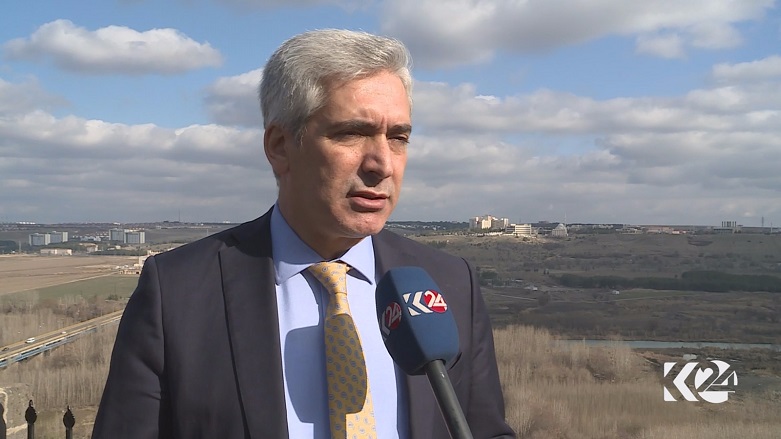AKP lawmaker accuses PKK of 'dividing' Kurdistan

DIYARBAKIR, Turkey (Kurdistan24) – The Kurdistan Workers’ Party (PKK) was “trying to divide” the Kurdistan Region by insisting on keeping its forces in the Yezidi (Ezidi)-Kurdish town of Shingal, according to a Friday statement by a Kurdish lawmaker.
“Shingal is a part of Kurdistan. The PKK is trying to divide Kurdistan,” said Galip Ensarioglu, one of the two Justice and Development (AKP) MPs for the major Kurdish province of Diyarbakir.
Ensarioglu was speaking to a Kurdistan24 reporter in Diyarbakir.
Regarding the PKK’s policy in Shingal, Ensarioglu pointed fingers at Iran, the Sunni-majority Turkey’s Shia rival in the region.
He also blamed Germany which President Recep Tayyip Erdogan and the government under his control has had an increasingly deepening diplomatic crisis with.
Shingal has been at the core of an intra-Kurdish strife between the Kurdistan Region authorities and PKK which came to the defense of the town’s civilian population during a genocidal Islamic State (IS) assault in 2014.
Both forces have co-existed during much of the time of fighting against IS, yet the dispute over who should rule the town and its environs during a post-IS period remained unsolved.
The discord turned into a much-dreaded yet short-lived conflict on March 3 when PKK’s local Sinjar Resistance Units (YBS) and a brigade of the Kurdistan Region’s Peshmerga forces clashed.
The military confrontation led to casualties from both sides.
Turkey has vigorously demanded a complete withdrawal from Shingal by the PKK which it labels a “terrorist group” for fighting its troops in a decades-long warfare over Kurdish rights.
The Region also called on the PKK to vacate the area both to assert its claimed right to rule Shingal and to ward off a threatened Turkish invasion.
Editing by Karzan Sulaivany
(Hasan Kako in Diyarbakir conducted the interview)
